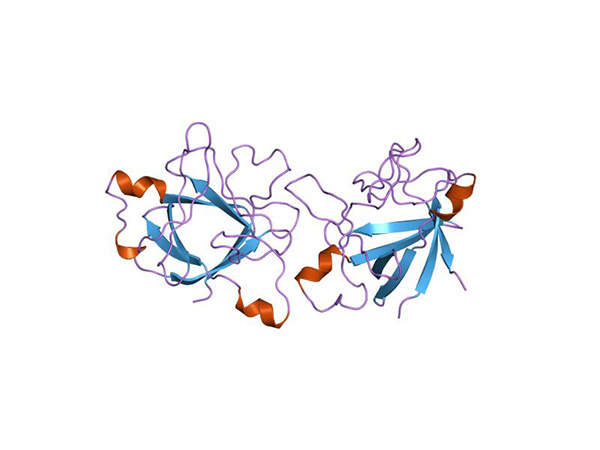Kineret (anakinra) is a recombinant protein drug which was originally discovered and developed by Amgen. The drug was later licensed to Swedish Orphan Biovitrum (Sobi) in December 2008. Sobi obtained a commercial license for the production, safety, supply and regulatory activities of Kineret.
The drug is indicated for the treatment neonatal-onset multisystem inflammatory disease (NOMID) in children and adults.
Kineret was approved by the US Food and Drug Administration for the treatment of NOMID in January 2013. Kineret previously obtained marketing approval from the FDA and other regulatory authorities for the treatment of rheumatoid arthritis in 2001.
Neonatal onset multisystem inflammatory disease (NOMID)
Neonatal onset multisystem inflammatory disease (NOMID) is an inherited autoinflammatory disease. It is a subtype or severe form of cryopyrin-associated periodic syndromes (CAPS), and is also known as chronic infantile neurological, cutaneous and articular syndrome (CINCA) in Europe.
The disease is characterised by uncontrolled inflammation, periodic fever and tissue damage affecting the nervous system, skin and joints. The symptoms of the disease include skin rashes, severe arthritis and chronic meningitis, leading to neurologic damage. The disease may lead to progressive hearing, vision loss, cognitive impairment and joint contractures.
The very rare disease affects about one in a million people worldwide.
Kineret’s mechanism of action
Kineret contains interleukin-1 receptor antagonist (IL-1RI). The drug works by blocking the biologic activity of IL-1 alpha and beta, which are responsible for the production of inflammation as well as the promotion of fever and sepsis. The drug is produced using an E coli bacterial expression system, through recombinant DNA technology.
The drug is available in prefilled glass syringe of 100mg dose, which can be administered as subcutaneous injection.
Clinical trials on Kineret / anakinra
A Phase I and II clinical study of Kineret was conducted between March 2006 and June 2007. It was a randomised, double blind, and parallel assignment conducted in the US. The study enrolled 10 patients with NOMID. The primary outcome measure of the study was finding the pain in a timeframe of four to 30 days. The secondary outcome measure included finding the chondropathy score.
The approval for Kineret was based on the results received from a Phase III open label and uncontrolled study. The study enrolled 43 NOMID patients who were aged between 0.7 and 46 years.
The patients were initially administered with Kineret dose of one to 2.4mg/kg body weight. The dose was adjusted by 0.5 to 1mg/kg increments, according to the specified protocol, up to a maximum of 10mg/kg daily. The maximum dose administered in the study was 7.6mg/kg/day. The average maintenance dose was three to 4mg/kg daily. Kineret was administered once-daily in some patients, and twice-daily in others.
The NOMID symptoms were measured using disease-specific Diary Symptom Sum Score (DSSS). The main disease symptoms were fever, rash, joint pain, vomiting and headache. The patients were treated for more than 60 months.
The results of the study were consistent in all subgroups. The improvements occurred in all individual disease symptoms comprising the DSSS. Common side effects found during the clinical study included injection site reaction, headache, vomiting, arthralgia, pyrexia and nasopharyngitis.
Marketing Kineret for NOMID in the US and Europe
In February 2013, Sobi agreed to co-promote Kineret in the US in association with Savient Pharmaceuticals. As per the agreement, Savient will launch Kinerer across the US in April 2013.
In January 2013, Sobi obtained approval from the European Medicines Agency (EMA) for the production of Kineret at Vienna, Austria, in collaboration with Boehringer Ingelheim.





